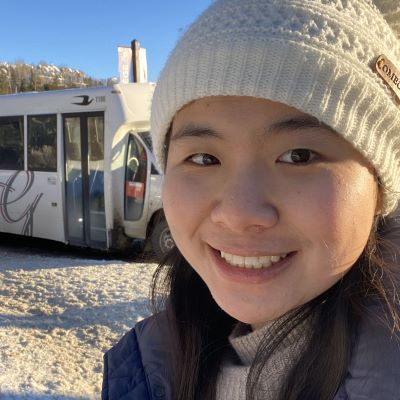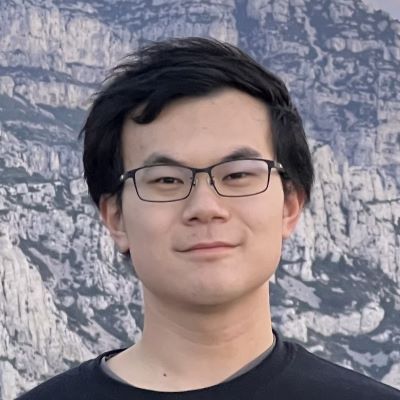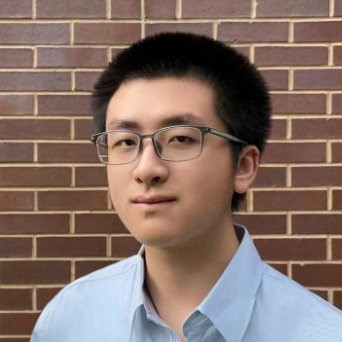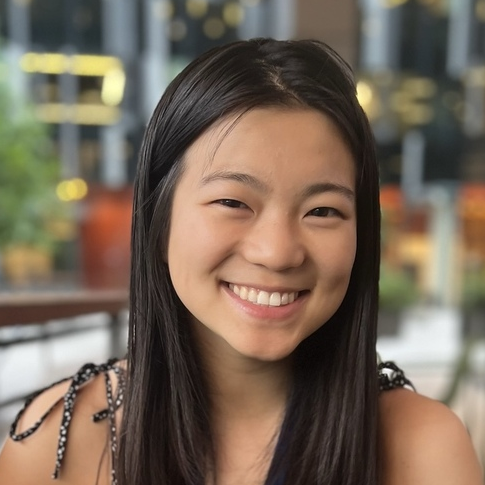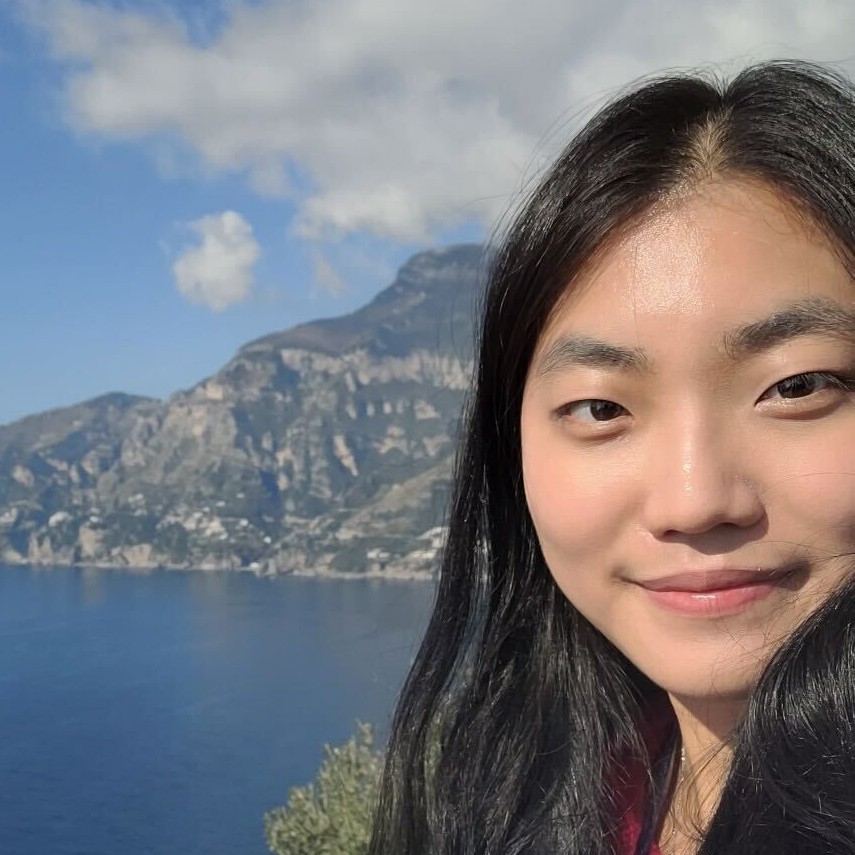Publications
* = equal contribution.
OpenScholar: Synthesizing scientific literature with retrieval-augmented LMs
Akari Asai, Jacqueline He*, Rulin Shao*, Weijia Shi, Amanpreet Singh, Joseph Chee Chang, Kyle Lo, Luca Soldaini, Sergey Feldman, Mike D'arcy, David Wadden, Matt Latzke, Minyang Tian, Pan Ji, Shengyan Liu, Hao Tong, Bohao Wu, Yanyu Xiong, Luke Zettlemoyer, Graham Neubig, Dan Weld, Doug Downey, Wen-tau Yih, Pang Wei Koh, and Hannaneh Hajishirzi
Nature (to appear) 2026
DR Tulu: Reinforcement learning with evolving rubrics for deep research
Rulin Shao*, Akari Asai*, Shannon Zejiang Shen*, Hamish Ivison*, Varsha Kishore, Jingming Zhuo, Xinran Zhao, Molly Park, Samuel Finlayson, David Sontag, Tyler Murray, Sewon Min, Pradeep Dasigi, Luca Soldaini, Faeze Brahman, Wen-tau Yih, Tongshuang Wu, Luke Zettlemoyer, Yoon Kim, Hannaneh Hajishirzi, and Pang Wei Koh
arXiv 2025
RLVE: Scaling up reinforcement learning for language models with adaptive verifiable environments
Zhiyuan Zeng*, Hamish Ivison*, Yiping Wang*, Lifan Yuan*, Shuyue Stella Li, Zhuorui Ye, Siting Li, Jacqueline He, Runlong Zhou, Tong Chen, Chenyang Zhao, Yulia Tsvetkov, Simon Shaolei Du, Natasha Jaques, Hao Peng, Pang Wei Koh, and Hannaneh Hajishirzi
arXiv 2025
Olmo 3
Team Olmo, Allyson Ettinger, Amanda Bertsch, Bailey Kuehl, David Graham, David Heineman, Dirk Groeneveld, Faeze Brahman, Finbarr Timbers, Hamish Ivison, Jacob Morrison, Jake Poznanski, Kyle Lo, Luca Soldaini, Matt Jordan, Mayee Chen, Michael Noukhovitch, Nathan Lambert, Pete Walsh, Pradeep Dasigi, Robert Berry, Saumya Malik, Saurabh Shah, Scott Geng, Shane Arora, Shashank Gupta, Taira Anderson, Teng Xiao, Tyler Murray, Tyler Romero, Victoria Graf, Akari Asai, Akshita Bhagia, Alexander Wettig, Alisa Liu, Aman Rangapur, Chloe Anastasiades, Costa Huang, Dustin Schwenk, Harsh Trivedi, Ian Magnusson, Jaron Lochner, Jiacheng Liu, Lester James V. Miranda, Maarten Sap, Malia Morgan, Michael Schmitz, Michal Guerquin, Michael Wilson, Regan Huff, Ronan Le Bras, Rui Xin, Rulin Shao, Sam Skjonsberg, Shannon Zejiang Shen, Shuyue Stella Li, Tucker Wilde, Valentina Pyatkin, Will Merrill, Yapei Chang, Yuling Gu, Zhiyuan Zeng, Ashish Sabharwal, Luke Zettlemoyer, Pang Wei Koh, Ali Farhadi, Noah A. Smith, and Hannaneh Hajishirzi
arXiv 2025
Self-improving VLM Judges without human annotations
Inna Wanyin Lin, Yushi Hu, Shuyue Stella Li, Scott Geng, Pang Wei Koh, Luke Zettlemoyer, Tim Althoff, and Marjan Ghazvininejad
arXiv 2025
Personalized reasoning: Just-in-time personalization and why LLMs fail at it
Shuyue Stella Li, Avinandan Bose, Faeze Brahman, Simon Shaolei Du, Pang Wei Koh, Maryam Fazel, and Yulia Tsvetkov
arXiv 2025
Spurious rewards: Rethinking training signals in RLVR
Rulin Shao*, Shuyue Stella Li*, Rui Xin*, Scott Geng*, Yiping Wang, Sewoong Oh, Simon Shaolei Du, Nathan Lambert, Sewon Min, Ranjay Krishna, Yulia Tsvetkov, Hannaneh Hajishirzi, Pang Wei Koh, and Luke Zettlemoyer
arXiv 2025
Frustratingly simple retrieval improves challenging, reasoning-intensive benchmarks
Xinxi Lyu, Michael Duan, Rulin Shao, Pang Wei Koh, and Sewon Min
arXiv 2025
FlexOlmo: Open language models for flexible data use
Weijia Shi, Akshita Bhagia, Kevin Farhat, Niklas Muennighoff, Pete Walsh, Jacob Morrison, Dustin Schwenk, Shayne Longpre, Jake Poznanski, Allyson Ettinger, Daogao Liu, Margaret Li, Dirk Groeneveld, Mike Lewis, Wen-tau Yih, Luca Soldaini, Kyle Lo, Noah A Smith, Luke Zettlemoyer, Pang Wei Koh, Hannaneh Hajishirzi, Ali Farhadi, and Sewon Min
NeurIPS 2025
Precise information control in long-form text generation
Jacqueline He, Howard Yen, Margaret Li, Shuyue Stella Li, Zhiyuan Zeng, Weijia Shi, Yulia Tsvetkov, Danqi Chen, Pang Wei Koh, and Luke Zettlemoyer
NeurIPS 2025
The Delta Learning hypothesis: Preference tuning on weak data can yield strong gains
Scott Geng, Hamish Ivison, Chun-Liang Li, Maarten Sap, Jerry Li, Ranjay Krishna, and Pang Wei Koh
COLM 2025
EvalTree: Profiling language model weaknesses via hierarchical capability trees
Zhiyuan Zeng, Yizhong Wang, Hannaneh Hajishirzi, and Pang Wei Koh
COLM 2025
ReasonIR: Training Retrievers for Reasoning Tasks
Rulin Shao*, Rui Qiao*, Varsha Kishore, Niklas Muennighoff, Xi Victoria Lin, Daniela Rus, Bryan Kian Hsiang Low, Sewon Min, Wen-tau Yih, Pang Wei Koh, and Luke Zettlemoyer
COLM 2025
Establishing task scaling laws via compute-efficient model ladders
Akshita Bhagia, Jiacheng Liu, Alexander Wettig, David Heineman, Oyvind Tafjord, Ananya Harsh Jha, Luca Soldaini, Noah A Smith, Dirk Groeneveld, Pang Wei Koh, Jesse Dodge, and Hannaneh Hajishirzi
COLM 2025
ParaPO: Aligning language models to reduce verbatim reproduction of pre-training data
Tong Chen, Faeze Brahman, Jiacheng Liu, Niloofar Mireshghallah, Weijia Shi, Pang Wei Koh, Luke Zettlemoyer, and Hannaneh Hajishirzi
COLM 2025
2 OLMo 2 Furious
Team OLMo, Pete Walsh, Luca Soldaini, Dirk Groeneveld, Kyle Lo, Shane Arora, Akshita Bhagia, Yuling Gu, Shengyi Huang, Matt Jordan, Nathan Lambert, Dustin Schwenk, Oyvind Tafjord, Taira Anderson, David Atkinson, Faeze Brahman, Christopher Clark, Pradeep Dasigi, Nouha Dziri, Michal Guerquin, Hamish Ivison, Pang Wei Koh, Jiacheng Liu, Saumya Malik, William Merrill, Lester James V. Miranda, Jacob Morrison, Tyler Murray, Crystal Nam, Valentina Pyatkin, Aman Rangapur, Michael Schmitz, Sam Skjonsberg, David Wadden, Christopher Wilhelm, Michael Wilson, Luke Zettlemoyer, Ali Farhadi, Noah A. Smith, and Hannaneh Hajishirzi
COLM 2025
Fluid language model benchmarking
Valentin Hofmann, David Heineman, Ian Magnusson, Kyle Lo, Jesse Dodge, Maarten Sap, Pang Wei Koh, Chun Wang, Hannaneh Hajishirzi, and Noah A. Smith
COLM 2025
The curious case of factuality finetuning: Models' internal beliefs can improve factuality
Benjamin Newman, Abhilasha Ravichander, Jaehun Jung, Rui Xin, Hamish Ivison, Yegor Kuznetsov, Pang Wei Koh, and Yejin Choi
arXiv 2025
A false sense of privacy: Evaluating textual data sanitization beyond surface-level privacy leakage
Rui Xin*, Niloofar Mireshghallah*, Shuyue Stella Li, Michael Duan, Hyunwoo Kim, Yejin Choi, Yulia Tsvetkov, Sewoong Oh, Pang Wei Koh
arXiv 2025
DataDecide: How to predict best pretraining data with small experiments
Ian Magnusson*, Nguyen Tai*, Ben Bogin*, David Heineman, Jena D Hwang, Luca Soldaini, Akshita Bhagia, Jiacheng Liu, Dirk Groeneveld, Oyvind Tafjord, Noah A Smith, Pang Wei Koh, and Jesse Dodge
ICML 2025
NICE: Non-differentiable evaluation metric-based data selection for instruction tuning
Jingtan Wang, Xiaoqiang Lin, Rui Qiao, Pang Wei Koh, Chuan-Sheng Foo, and Bryan Kian Hsiang Low
ICML 2025
OLMoTrace: Tracing language model outputs back to trillions of training tokens
Jiacheng Liu, Taylor Blanton, Yanai Elazar, Sewon Min, YenSung Chen, Arnavi Chheda-Kothary, Huy Tran, Byron Bischoff, Eric Marsh, Michael Schmitz, Cassidy Trier, Aaron Sarnat, Jenna James, Jon Borchardt, Bailey Kuehl, Evie Cheng, Karen Farley, Sruthi Sreeram, Taira Anderson, David Albright, Carissa Schoenick, Luca Soldaini, Dirk Groeneveld, Rock Yuren Pang, Pang Wei Koh, Noah A Smith, Sophie Lebrecht, Yejin Choi, Hannaneh Hajishirzi, Ali Farhadi, and Jesse Dodge
ACL 2025
Large-scale data selection for instruction tuning
Hamish Ivison, Muru Zhang, Faeze Brahman, Pang Wei Koh, and Pradeep Dasigi
arXiv 2025
S4S: Solving for a diffusion model solver
Eric Frankel, Sitan Chen, Jerry Li, Pang Wei Koh, Lillian J Ratliff, and Sewoong Oh
ICML 2025
Metabolically purified human stem cell-derived hepatocytes reveal distinct effects of Ebola and Lassa viruses
Joseph B Prescott, Kevin J Liu, Angelika Lander, Nicole Min Qian Pek, Sawan Kumar Jha, Marcel Bokelmann, Manali Begur, Pang Wei Koh, Henry Yang, Bing Lim, Kristy Red-Horse, Irving L Weissman, Kyle M Loh, Lay Teng Ang
bioRxiv 2025
Exploring how generative MLLMs perceive more than CLIP with the same vision encoder
Siting Li, Pang Wei Koh, and Simon Shaolei Du
ACL 2025
OLMoE: Open Mixture-of-Experts language models
Niklas Muennighoff, Luca Soldaini, Dirk Groeneveld, Kyle Lo, Jacob Morrison, Sewon Min, Weijia Shi, Pete Walsh, Oyvind Tafjord, Nathan Lambert, Yuling Gu, Shane Arora, Akshita Bhagia, Dustin Schwenk, David Wadden, Alexander Wettig, Binyuan Hui, Tim Dettmers, Douwe Kiela, Ali Farhadi, Noah A Smith, Pang Wei Koh, Amanpreet Singh, and Hannaneh Hajishirzi
ICLR 2025
Language models scale reliably with over-training and on downstream tasks
Samir Yitzhak Gadre, Georgios Smyrnis, Vaishaal Shankar, Suchin Gururangan, Mitchell Wortsman, Rulin Shao, Jean Mercat, Alex Fang, Jeffrey Li, Sedrick Keh, Rui Xin, Marianna Nezhurina, Igor Vasiljevic, Jenia Jitsev, Luca Soldaini, Alexandros G. Dimakis, Gabriel Ilharco, Pang Wei Koh, Shuran Song, Thomas Kollar, Yair Carmon, Achal Dave, Reinhard Heckel, Niklas Muennighoff, and Ludwig Schmidt
ICLR 2025
Group-robust sample reweighting for subpopulation shifts via influence functions
Rui Qiao, Zhaoxuan Wu, Jingtan Wang, Pang Wei Koh, and Bryan Kian Hsiang Low
ICLR 2025
Use large language models to promote equity
Emma Pierson*, Divya Shanmugam*, Rajiv Movva*, Jon Kleinberg*, Monica Agrawal, Mark Dredze, Kadija Ferryman, Judy Wawira Gichoya, Dan Jurafsky, Pang Wei Koh, Karen Levy, Sendhil Mullainathan, Ziad Obermeyer, Harini Suresh, and Keyon Vafa
NEJM AI 2025
ICONS: Influence Consensus for Vision-Language Data Selection
Xindi Wu, Mengzhou Xia, Rulin Shao, Zhiwei Deng, Pang Wei Koh, and Olga Russakovsky
arXiv 2025
PLeaS--Merging models with permutations and least squares
Anshul Nasery, Jonathan Hayase, Pang Wei Koh, and Sewoong Oh
CVPR 2025
Negative Token Merging: Image-based adversarial feature guidance
Jaskirat Singh, Lindsey Li, Weijia Shi, Ranjay Krishna, Yejin Choi, Pang Wei Koh, Michael F Cohen, Stephen Gould, Liang Zheng, and Luke Zettlemoyer
arXiv 2024
Scaling retrieval-based language models with a trillion-token datastore
Rulin Shao, Jacqueline He, Akari Asai, Weijia Shi, Tim Dettmers, Sewon Min, Luke Zettlemoyer, and Pang Wei Koh
NeurIPS 2024
The unmet promise of synthetic training images: Using retrieved real images performs better
Scott Geng, Cheng-Yu Hsieh, Vivek Ramanujan, Matthew Wallingford, Chun-Liang Li, Pang Wei Koh, and Ranjay Krishna
NeurIPS 2024
MEDIQ: Question-asking LLMs for adaptive and reliable clinical reasoning
Shuyue Stella Li, Vidhisha Balachandran, Shangbin Feng, Jonathan Ilgen, Emma Pierson, Pang Wei Koh, and Yulia Tsvetkov
NeurIPS 2024
Uncertainty of Thoughts: Uncertainty-aware planning enhances information seeking in large language models
Zhiyuan Hu, Chumin Liu, Xidong Feng, Yilun Zhao, See-Kiong Ng, Anh Tuan Luu, Junxian He, Pang Wei Koh, and Bryan Hooi
NeurIPS 2024
Multilingual diversity improves vision-language representations
Thao Nguyen, Matthew Wallingford, Sebastin Santy, Wei-Chiu Ma, Sewoong Oh, Ludwig Schmidt, Pang Wei Koh, and Ranjay Krishna
NeurIPS 2024
DataComp-LM: In search of the next generation of training sets for language models
Jeffrey Li, Alex Fang, Georgios Smyrnis, Maor Ivgi, Matt Jordan, Samir Gadre, Hritik Bansal, Etash Guha, Sedrick Keh, Kushal Arora, Saurabh Garg, Rui Xin, Niklas Muennighoff, Reinhard Heckel, Jean Mercat, Mayee Chen, Suchin Gururangan, Mitchell Wortsman, Alon Albalak, Yonatan Bitton, Marianna Nezhurina, Amro Abbas, Cheng-Yu Hsieh, Dhruba Ghosh, Josh Gardner, Maciej Kilian, Hanlin Zhang, Rulin Shao, Sarah Pratt, Sunny Sanyal, Gabriel Ilharco, Giannis Daras, Kalyani Marathe, Aaron Gokaslan, Jieyu Zhang, Khyathi Chandu, Thao Nguyen, Igor Vasiljevic, Sham Kakade, Shuran Song, Sujay Sanghavi, Fartash Faghri, Sewoong Oh, Luke Zettlemoyer, Kyle Lo, Alaaeldin El-Nouby, Hadi Pouransari, Alexander Toshev, Stephanie Wang, Dirk Groeneveld, Luca Soldaini, Pang Wei Koh, Jenia Jitsev, Thomas Kollar, Alexandros G. Dimakis, Yair Carmon, Achal Dave, Ludwig Schmidt, and Vaishaal Shankar
NeurIPS (Datasets and Benchmarks Track) 2024
JPEG-LM: LLMs as image generators with canonical codec representations
Xiaochuang Han, Marjan Ghazvininejad, Pang Wei Koh, and Yulia Tsvetkov
arXiv 2024
MoSH: Modeling multi-objective tradeoffs with soft and hard bounds
Edward Chen, Natalie Dullerud, Thomas Niedermayr, Elizabeth Kidd, Ransalu Senanayake, Pang Wei Koh, Sanmi Koyejo, and Carlos Guestrin
arXiv 2024
CopyBench: Measuring literal and non-literal reproduction of copyright-protected text in language model generation
Tong Chen, Akari Asai, Niloofar Mireshghallah, Sewon Min, James Grimmelmann, Yejin Choi, Hannaneh Hajishirzi, Luke Zettlemoyer, and Pang Wei Koh
EMNLP 2024
Data-centric AI in the age of large language models
Xinyi Xu, Zhaoxuan Wu, Rui Qiao, Arun Verma, Yao Shu, Jingtan Wang, Xinyuan Niu, Zhenfeng He, Jiangwei Chen, Zijian Zhou, Gregory Kang Ruey Lau, Hieu Dao, Lucas Agussurja, Rachael Hwee Ling Sim, Xiaoqiang Lin, Wenyang Hu, Zhongxiang Dai, Pang Wei Koh, and Bryan Kian Hsiang Low
EMNLP Findings 2024
Merge to Learn: Efficiently adding skills to language models with model merging
Jacob Morrison, Noah A. Smith, Hannaneh Hajishirzi, Pang Wei Koh, Jesse Dodge, Pradeep Dasigi
EMNLP Findings 2024
Annotation alignment: Comparing LLM and human annotations of conversational safety
Rajiv Movva, Pang Wei Koh, and Emma Pierson
EMNLP 2024
Information-theoretic distillation for reference-less summarization
Jaehun Jung, Ximing Lu, Liwei Jiang, Faeze Brahman, Peter West, Pang Wei Koh, and Yejin Choi
COLM 2024
Using unlabeled data to enhance fairness of medical AI
Rajiv Movva, Pang Wei Koh, and Emma Pierson
Nature Medicine 2024
Reliable, adaptable, and attributable language models with retrieval
Akari Asai, Zexuan Zhong, Danqi Chen, Pang Wei Koh, Luke Zettlemoyer, Hannaneh Hajishirzi, and Wen-tau Yih
arXiv 2024
Instructional fingerprinting of large language models
Jiashu Xu, Fei Wang, Mingyu Derek Ma, Pang Wei Koh, Chaowei Xiao, and Muhao Chen
NAACL 2024
The generative AI paradox: "What it can create, it may not understand"
Peter West*, Ximing Lu*, Nouha Dziri*, Faeze Brahman*, Linjie Li*, Jena D. Hwang, Liwei Jiang, Jillian Fisher, Abhilasha Ravichander, Khyathi Chandu, Benjamin Newman, Pang Wei Koh, Allyson Ettinger, and Yejin Choi
ICLR 2024
Leveraging domain relations for domain generalization
Huaxiu Yao*, Xinyu Yang*, Xinyi Pan, Shengchao Liu, Pang Wei Koh, and Chelsea Finn
ICLR 2024
Impossibility theorems for feature attribution
Blair Bilodeau, Natasha Jaques, Pang Wei Koh, and Been Kim
Proceedings of the National Academy of Sciences (PNAS) 2024
Retrieval-based language models using a multi-domain datastore
Rulin Shao, Sewon Min, Luke Zettlemoyer, and Pang Wei Koh
NeurIPS Workshop on Distributution Shifts (DistShift) 2023
OpenFlamingo: An open-source framework for training large autoregressive vision-language models
Anas Awadalla*, Irena Gao*, Josh Gardner, Jack Hessel, Yusuf Hanafy, Wanrong Zhu, Kalyani Marathe, Yonatan Bitton, Samir Gadre, Shiori Sagawa, Jenia Jitsev, Simon Kornblith, Pang Wei Koh, Gabriel Ilharco, Mitchell Wortsman, and Ludwig Schmidt
arXiv 2023
FActScore: Fine-grained atomic evaluation of factual precision in long form text generation
Sewon Min, Kalpesh Krishna, Xinxi Lyu, Mike Lewis, Wen-tau Yih, Pang Wei Koh, Mohit Iyyer, Luke Zettlemoyer, and Hannaneh Hajishirzi
EMNLP 2023
DataComp: In search of the next generation of multimodal datasets
Samir Yitzhak Gadre*, Gabriel Ilharco*, Alex Fang*, Jonathan Hayase, Georgios Smyrnis, Thao Nguyen, Ryan Marten, Mitchell Wortsman, Dhruba Ghosh, Jieyu Zhang, Eyal Orgad, Rahim Entezari, Giannis Daras, Sarah Pratt, Vivek Ramanujan, Yonatan Bitton, Kalyani Marathe, Stephen Mussmann, Richard Vencu, Mehdi Cherti, Ranjay Krishna, Pang Wei Koh, Olga Saukh, Alexander Ratner, Shuran Song, Hannaneh Hajishirzi, Ali Farhadi, Romain Beaumont, Sewoong Oh, Alex Dimakis, Jenia Jitsev, Yair Carmon, Vaishaal Shankar, and Ludwig Schmidt
NeurIPS (Datasets and Benchmarks Track) 2023
Proximity-informed calibration for deep neural networks
Miao Xiong, Ailin Deng, Pang Wei Koh, Jiaying Wu, Shen Li, Jianqing Xu, and Bryan Hooi
NeurIPS 2023
Are aligned neural networks adversarially aligned?
Nicholas Carlini, Milad Nasr, Christopher A Choquette-Choo, Matthew Jagielski, Irena Gao, Anas Awadalla, Pang Wei Koh, Daphne Ippolito, Katherine Lee, Florian Tramer, and Ludwig Schmidt
NeurIPS 2023
On the trade-off of intra-/inter-class diversity for supervised pre-training
Jieyu Zhang*, Bohan Wang*, Zhengyu Hu, Pang Wei Koh, and Alexander Ratner
NeurIPS 2023
Out-of-distribution robustness via targeted augmentations
Irena Gao*, Shiori Sagawa*, Pang Wei Koh, Tatsunori Hashimoto, and Percy Liang
ICML 2023
Wild-Time: A benchmark of in-the-wild distribution shift over time
Huaxiu Yao*, Caroline Choi*, Yoonho Lee, Pang Wei Koh, and Chelsea Finn
NeurIPS (Datasets and Benchmarks Track) 2022
Extending the WILDS benchmark for unsupervised adaptation
Shiori Sagawa*, Pang Wei Koh*, Tony Lee*, Irena Gao*, Sang Michael Xie, Kendrick Shen, Ananya Kumar, Weihua Hu, Michihiro Yasunaga, Henrik Marklund, Sara Beery, Etienne David, Ian Stavness, Wei Guo, Jure Leskovec, Kate Saenko, Tatsunori Hashimoto, Sergey Levine, Chelsea Finn, and Percy Liang
ICLR 2022
WILDS: A benchmark of in-the-wild distribution shifts
Pang Wei Koh*, Shiori Sagawa*, Henrik Marklund, Sang Michael Xie, Marvin Zhang, Akshay Balsubramani, Weihua Hu, Michihiro Yasunaga, Richard Lanas Phillips, Irena Gao, Tony Lee, Etienne David, Ian Stavness, Wei Guo, Berton A. Earnshaw, Imran S. Haque, Sara Beery, Jure Leskovec, Anshul Kundaje, Emma Pierson, Sergey Levine, Chelsea Finn, and Percy Liang
ICML 2021
Just Train Twice: Improving group robustness without training group information
Evan Zheran Liu*, Behzad Haghgoo*, Annie S. Chen*, Aditi Raghunathan, Pang Wei Koh, Shiori Sagawa, Percy Liang, and Chelsea Finn
ICML 2021
Accuracy on the line: On the strong correlation between out-of-distribution and in-distribution generalization
John Miller, Rohan Taori, Aditi Raghunathan, Shiori Sagawa, Pang Wei Koh, Vaishaal Shankar, Percy Liang, Yair Carmon, and Ludwig Schmidt
ICML 2021
Supporting COVID-19 policy response with large-scale mobility-based modeling
Serina Chang, Mandy L. Wilson, Bryan Lewis, Zakaria Mehrab, Komal K. Dudakiya, Emma Pierson, Pang Wei Koh, Jaline Gerardin, Beth Redbird, David Grusky, Madhav Marathe, Jure Leskovec
KDD (Applied Data Science track) 2021
On the opportunities and risks of foundation models
Rishi Bommasani, Drew A. Hudson, ..., Pang Wei Koh, ..., and Percy Liang (116 authors, alphabetical within ellipses)
arXiv 2021
Selective classification can magnify disparities across groups
Erik Jones*, Shiori Sagawa*, Pang Wei Koh*, Ananya Kumar, and Percy Liang
ICLR 2021
Stronger data poisoning attacks break data sanitization defenses
Pang Wei Koh*, Jacob Steinhardt*, and Percy Liang
Machine Learning 2021
Mobility network models of COVID-19 explain inequities and inform reopening
Serina Y Chang*, Emma Pierson*, Pang Wei Koh*, Jaline Gerardin, Beth Redbird, David Grusky, and Jure Leskovec
Nature 2021
Concept bottleneck models
Pang Wei Koh*, Thao Nguyen*, Yew Siang Tang*, Steve Mussmann, Emma Pierson, Been Kim, and Percy Liang
ICML 2020
An investigation of why overparameterization exacerbates spurious correlations
Shiori Sagawa*, Aditi Raghunathan*, Pang Wei Koh*, and Percy Liang
ICML 2020
ExpBERT: Representation engineering with natural language explanations
Shikhar Murty, Pang Wei Koh, and Percy Liang
ACL 2020
Toward trustworthy AI development: Mechanisms for supporting verifiable claims
Miles Brundage*, Shahar Avin*, Jasmine Wang*, Haydn Belfield*, Gretchen Krueger*, Gillian Hadfield, Heidy Khlaaf, Jingying Yang, Helen Toner, Ruth Fong, Tegan Maharaj, Pang Wei Koh, Sara Hooker, ..., Thomas Krendl Gilbert, Lisa Dyer, Saif Khan, Yoshua Bengio, and Markus Anderljung
arXiv 2020
Distributionally robust neural networks for group shifts: On the importance of regularization for worst-case generalization
Shiori Sagawa*, Pang Wei Koh*, Tatsunori B. Hashimoto, and Percy Liang
ICLR 2020
On the accuracy of influence functions for measuring group effects
Pang Wei Koh*, Kai-Siang Ang*, Hubert H. K. Teo*, and Percy Liang
NeurIPS 2019
Temporal FiLM: Capturing long-range sequence dependencies with feature-wise modulations
Sawyer Birnbaum*, Volodymyr Kuleshov*, Zayd Enam, Pang Wei Koh, Stefano Ermon
NeurIPS 2019
Inferring multi-dimensional rates of aging from cross-sectional data
Emma Pierson*, Pang Wei Koh*, Tatsunori B. Hashimoto*, Daphne Koller, Jure Leskovec, Nicholas Eriksson, and Percy Liang
AISTATS 2019
Certified defenses for data poisoning attacks
Jacob Steinhardt*, Pang Wei Koh*, and Percy Liang
NeurIPS 2017
Understanding black-box predictions via influence functions
Pang Wei Koh and Percy Liang
ICML 2017
Localized hepatic lobular regeneration by central-vein-associated lineage-restricted progenitors
Jonathan M. Tsai, Pang Wei Koh, Ania Stefanska, Liujing Xing, Graham G. Walmsley, Nicolas Poux, Irving L. Weissman, and Yuval Rinkevich
Proceedings of the National Academy of Sciences (PNAS) 2017
An atlas of transcriptional, chromatin accessibility, and surface marker changes in human mesoderm development
Pang Wei Koh*, Rahul Sinha*, Amira A. Barkal, Rachel M. Morganti, Angela Chen, Irving L. Weissman, Lay Teng Ang, Anshul Kundaje, and Kyle M. Loh
Scientific Data 2016
Mapping the pairwise choices leading from pluripotency to human bone, heart, and other mesoderm cell types
Kyle M. Loh*, Angela Chen*, Pang Wei Koh, Tianda Z. Deng, Rahul Sinha, Jonathan M. Tsai, Amira A. Barkal, Kimberle Y. Shen, Rajan Jain, Rachel M. Morganti, Ng Shyh-Chang, Nathaniel B. Fernhoff, Benson M. George, Gerlinde Wernig, Rachel E.A. Salomon, Zhenghao Chen, Hannes Vogel, Jonathan A. Epstein, Anshul Kundaje, William S. Talbot, Philip A. Beachy, Lay Teng Ang, and Irving L. Weissman
Cell 2016
Denoising genome-wide histone ChIP-seq with convolutional neural networks
Pang Wei Koh*, Emma Pierson*, and Anshul Kundaje
Intelligent Systems for Molecular Biology (ISMB) / Bioinformatics 2017
Dissecting an online intervention for cancer survivors
Zhenghao Chen, Pang Wei Koh, Philip L. Ritter, Kate Lorig, Erin O'Carroll Bantum, and Suchi Saria
Health Education & Behavior 2014
Peer and self assessment in massive online classes
Chinmay Kulkarni, Pang Wei Koh, Huy Le, Daniel Chia, Kathryn Papadopoulos, Justin Cheng, Daphne Koller, and Scott Klemmer
ACM Transactions on Computer-Human Interaction 2013
Identifying genetic drivers of cancer morphology
Pang Wei Koh, Andrew Beck, and Daphne Koller.
Undergraduate honors thesis 2012
Sparse filtering
Jiquan Ngiam, Pang Wei Koh, Zhenghao Chen, Sonia Bhaskar, and Andrew Y. Ng
NeurIPS 2011
Learning deep energy models
Jiquan Ngiam, Zhenghao Chen, Pang Wei Koh, and Andrew Y. Ng
ICML 2011
On random weights and unsupervised feature learning
Andrew Saxe, Pang Wei Koh, Zhenghao Chen, Maneesh Bhand, Bipin Suresh, and Andrew Y. Ng
ICML 2011
Tiled convolutional neural networks
Quoc V. Le, Jiquan Ngiam, Zhenghao Chen, Daniel Chia, Pang Wei Koh, and Andrew Y. Ng
NeurIPS 2010
Lower bound on the time complexity of local adiabatic evolution
Zhenghao Chen, Pang Wei Koh, and Zhao Yan
Physical Review A 2006

